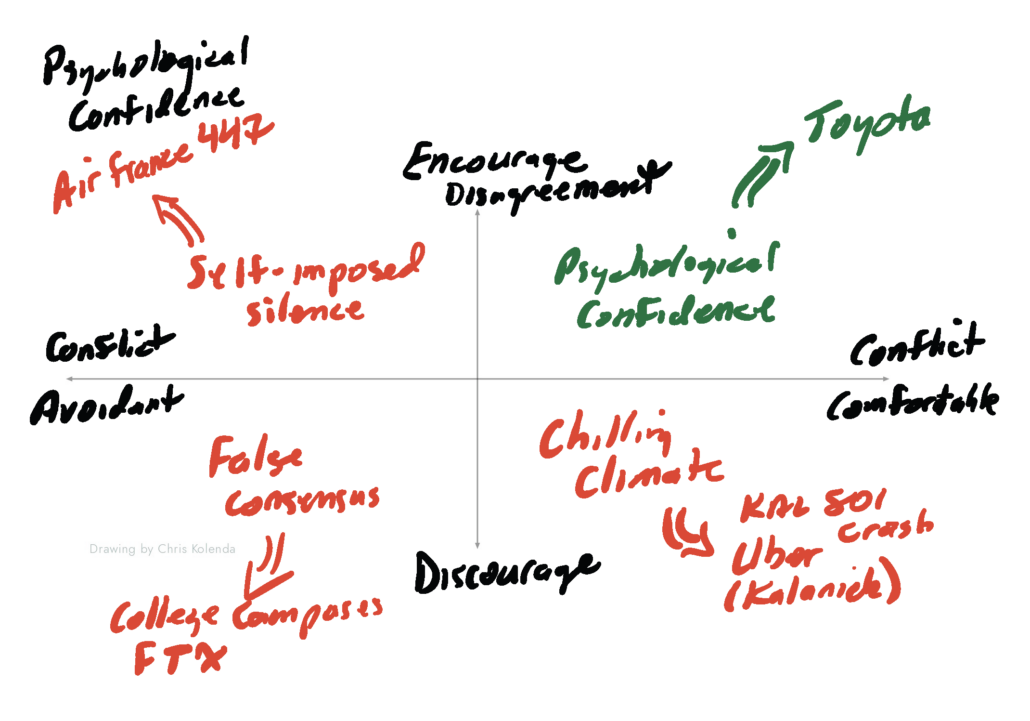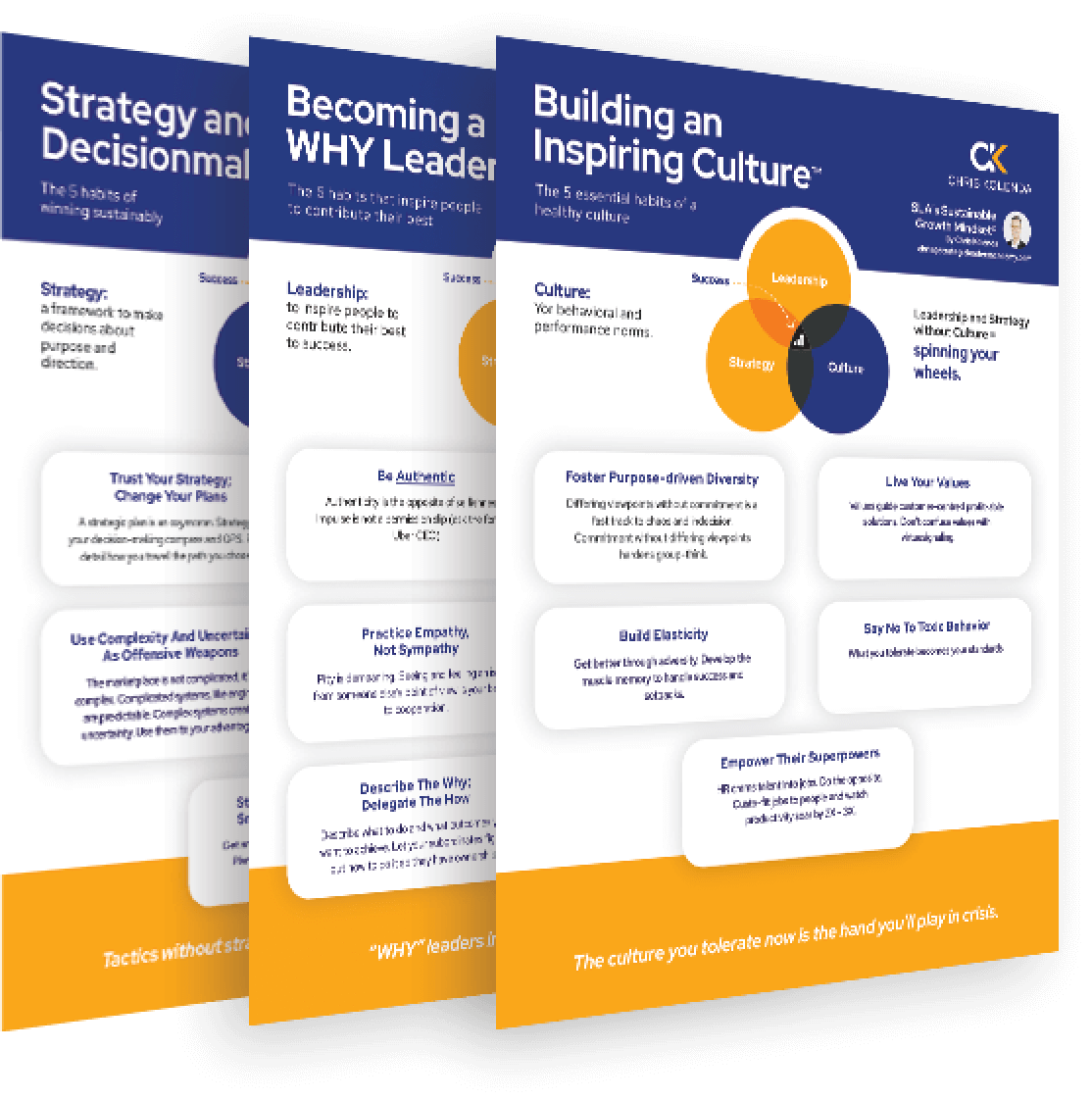Boosting Psychological Confidence
Psychological confidence arises when people are willing to speak up without fear of retribution; they do so respectfully and are confident they’ll be heard.
I prefer this term over psychological safety because safety-ism has created an expectation that employees should be free from accountability. Psychological confidence is about the courage to speak up and listen with an open mind, not about trigger warnings, safe spaces, and microaggressions.
People with psychological confidence report problems immediately, offer you fresh ideas that improve your business, and responsibly try new things that make your people, processes, and products work better.
You don’t get innovation without psychological confidence.
According to an Accenture study that cites Gartner, HBR, and Gallup, companies with high psychological safety (confidence) experience:
27% lower turnover
76% higher engagement
50% more productivity
Your employees experience:
74% less stress
67% willingness to try new things
29% more life satisfaction
All three elements are vital for psychological confidence. Employees who fear retribution for disagreeing with their boss will keep problems and ideas to themselves, just like the co-pilot on the ill-fated Air France flight 447.
The inability to disagree agreeably promotes gaslighting – employees will stay silent to avoid being blasted by a colleague. Such self-censoring is rampant on college campuses.
Finally, no one will waste the effort to speak up if they don’t believe you’ll take them seriously; exhibit A is FTX’s collapse.
Magic happens when all three elements are working together. The willingness to speak up and disagree agreeably creates open-mindedness. Speaking up and believing you’ll be taken seriously creates confidence, and agreeing disagreeably while knowing you’ll be taken seriously builds trust.
Open-mindedness, confidence, and trust are the heartbeat of psychological confidence, creating the abundance mentality to share wisdom and co-create, leading to innovation.
To help you assess the degree of psychological confidence in your organization, Dr. Mark Goulston and I developed a survey that produces your Net Psychological Confidence Score.
You can take it here as an individual to gauge your personal level of confidence. We can also create a version customized for your organization.
You’ll gain:
- Your organization’s Net Psychological Confidence score, which you can use as a baseline for gauging progress.
- Knowledge on what factors are playing the most significant role in your score.
- Follow-up videos and action steps you can use immediately to strengthen your organization’s psychological confidence.
- Greater trust, more innovation, lower turnover, and less stress as you implement these steps.
Check out the survey here, and email me or schedule a call if you’d like to see if your Net Psychological Confidence Score is a good fit for your organization.






